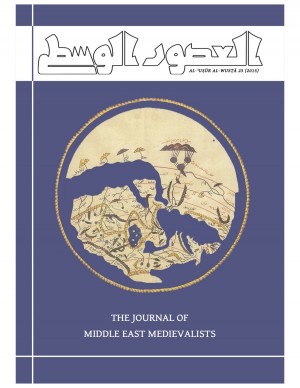Abstract
Al-Balādhurī (d. 892) explains the Arabization of the Umayyad dīwān with an anecdote about a Greek scribe who urinated in the inkpot. In response, we are told, ʿAbd al-Malik dismissed Greek scribes from their posts and changed the language of the administration to Arabic. This is a concise, entertaining explanation for linguistic change in the Near East. Nevertheless, al-Balādhurī’s explanation falls somewhat short of scholarly expectations. The process of Arabization was not merely the purview of the caliph and his scribes, but rather a broad social phenomenon, as merchants, scholars, soldiers, and administrators alike turned to Arabic as a lingua franca. Muslims used Arabic, the language of the Qurʾān, to compose religious texts, record bills of sale, write philosophical and scientific texts, and adorn buildings. Jews and Christians also composed and engaged texts in Arabic, signaling the appreciation of Arabic across religious boundaries.

This work is licensed under a Creative Commons Attribution-NonCommercial-NoDerivatives 4.0 International License.
Copyright (c) 2020 Alison M. Vacca

